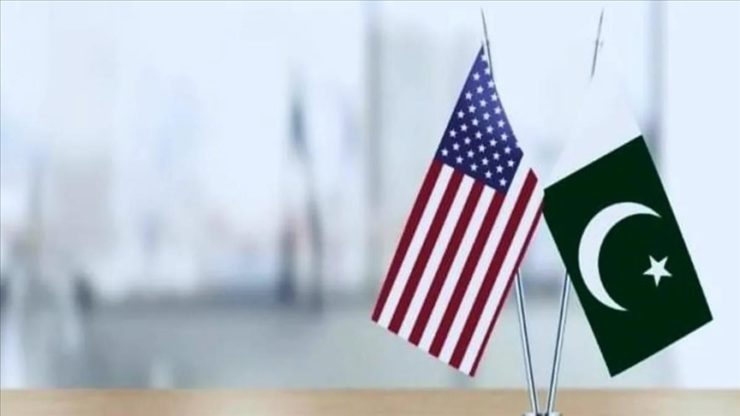
Since the inception of Pakistan, the country has been one of the closest non-NATO allies of the United States. Pakistan has played a crucial role in the major US-led wars in the South Asian region, including the Cold War, the Afghan War in 1979, and the US-led War on Terror. However, the bilateral relations between the United States and Pakistan have always been transactional. The relations between the US and Pakistan have often waxed and waned according to the evolving regional situation. The two countries came close due to the changing regional dynamics, but once the storm subsided, their relations reached to a nadir. The need-based relations between the two countries bound them to hold certain expectations. However, when these expectations are not met, the relations between the two sides start deteriorating. The United States has a history of penalizing and blaming Pakistan for its failure. This has resulted in an anti-American sentiment in the country. Meanwhile, the United States has also betrayed many of its allies in history, including the Kurds and Iraqis in 1991.
Pakistan’s security and economic needs coerced it to join the US bloc during the Cold War. The country’s immature policy-makers at the inception of Pakistan took the notion of International Relations for granted that there are only interests are permanent in international relations, not friends or foes while pursuing their relations with the United States. On the other hand, the latter has always acted realistically towards its relations with Pakistan. Pakistan has been a key ally of the latter during the Cold War. It joined the Southeast Asia Treaty Organization (SEATO) and Central Treaty Organization (CENTO) in 1954 and 1955 respectively against the Soviet bloc at the behest of the United States. Pakistan helped the US to curtail the Soviet expansion in the 1950s and received military aid of $1.2 to $1.5 billion in that era. It also received economic assistance of $3 billion from 1947 to 1965. Pakistan and the US signed the agreement of Defense for Bilateral Cooperation in 1959 which bound the two countries to help each other in the wake of any attack on the sovereignty of the other. However, the United States betrayed Pakistan by violating this agreement during the latter’s 1965 and 1971 wars against India. The country played a crucial role in the Soviet-Afghan war in 1979 with the support of the United States. Pakistan provided military aid to the Afghan Mujahideen against the Soviet Union. However, it became the target of the United States’ sanctions under the Pressler Amendment in 1985.
Moreover, Pakistan came under US sanctions once again in 1998 through the Glenn and Symington amendments due to the latter’s nuclear tests. Pakistan was severely hurt by these sanctions as, at that time, the foreign debt of the country reached $30 billion, but the foreign exchange reserves of Pakistan were only limited to $600 million. These sanctions resulted in bitter relations between the two sides, but the 9/11 attacks once again brought them closer. The bilateral relations between Pakistan and the United States improved following these attacks. The latter removed its sanctions from Pakistan to lure it into an alliance with the United States in its War on Terror. This cordiality continued for two decades. Pakistan faced grave implications for being a US ally in the War on Terror.
The country became a target of terrorist organizations due to its involvement in this war. It lost more than 150 billion USD and its death toll from this war exceeded 70000 lives. Alone in the year 2013, the country faced nearly 4000 terrorist attacks. Pakistan also saw a vehement refugee inflow, which resulted in deteriorating the social and economic plight of the country. Former US president Donald Trump solicited Pakistan’s assistance in negotiating with the Afghan Taliban and provided the US a face-saving for its shameful defeat in the War on Terror. However, despite these sacrifices, the United States used it as a scapegoat for its disgraceful defeat in Afghanistan. It blamed Pakistan for its failure in the War on Terror in Afghanistan.
Currently, the bilateral relations between Pakistan and the United States are seeing another period of deterioration. Pakistan has been left alone to deal with the rising terrorism after the rise of the Taliban government in Afghanistan. Moreover, the country is also dealing with the negative implications of Afghan refugees’ migration into Pakistan. The two countries are on opposite sides at the regional and global level. The United States has become a close ally of Pakistan’s arch-rival, India. The former is providing military assistance to India, which has inculcated a sense of insecurity in Pakistan. Moreover, the latter has also faced difficulties in procuring the IMF deal and being white-listed in the FATF due to the politicization of the forum. Many analysts think of it as a result of declining US-Pakistan relations. On the other hand, Pakistan is improving its relations with China and Russia, which has posed it against the United States at the global level. Pakistan and Russia have redefined their foreign policy outlooks towards each other. Furthermore, Pakistan is also hosting CPEC, the flagship project of the Belt and Road Initiative (BRI), which has also been criticized by the United States. Overall, the United States has always betrayed Pakistan after achieving its regional ambitions.
Abbas Hashemite- is a political observer and research analyst for regional and global geopolitical issues. He is currently working as an independent researcher and journalist, exclusively for “New Eastern Outlook“.